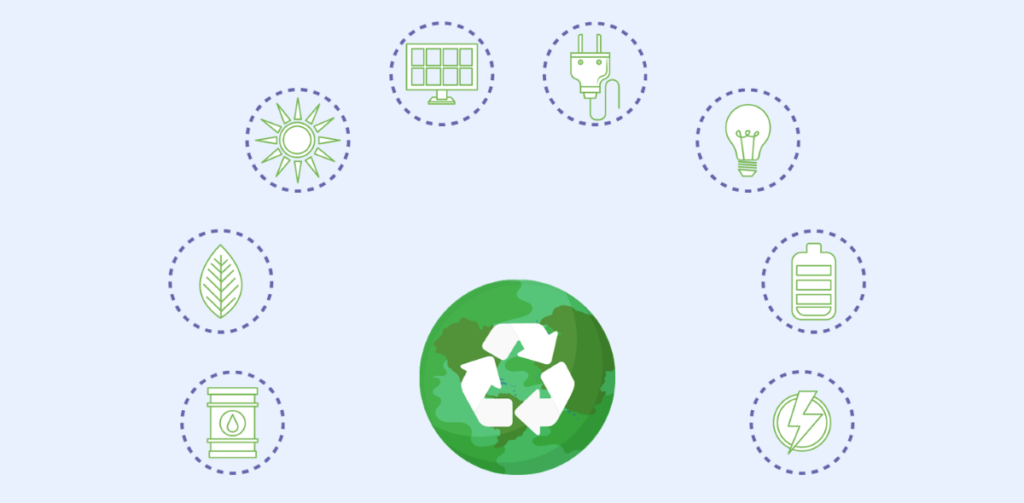In a world increasingly conscious of environmental impact, businesses embrace sustainable practices as a fundamental responsibility. This article explores the importance of sustainable practices and introduces eco-friendly business solutions that benefit the planet and contribute to long-term business success.
The Significance of Sustainable Practices
Sustainable business practices involve adopting strategies that minimize the environmental impact of operations while promoting social responsibility and economic viability. The significance of integrating sustainability into business practices extends beyond ecological conservation—it is a crucial driver for attracting conscientious consumers and enhancing brand reputation.
Aligning with Consumer Values
Modern consumers are becoming more environmentally conscious and are making purchasing decisions based on a company’s commitment to sustainability. Businesses that prioritize eco-friendly practices meet the expectations of a growing market segment and build trust and loyalty with customers who value sustainability.
Eco-Friendly Business Solutions
Let’s explore practical and effective eco-friendly business solutions that contribute to sustainable practices.
Adopting Renewable Energy Sources
Transitioning to renewable energy sources is a significant step towards reducing a business’s carbon footprint. Investing in solar, wind, or other renewable energy options decreases reliance on non-renewable resources and often results in long-term cost savings through reduced energy bills.
Implementing Sustainable Supply Chain Practices
A sustainable business extends its commitment to environmental responsibility throughout its supply chain. This involves partnering with suppliers who adhere to ethical and eco-friendly practices. Prioritizing local suppliers, reducing transportation emissions, and ensuring fair labor practices contribute to a more sustainable supply chain.
Reducing and Recycling
Waste reduction and recycling initiatives are central to sustainable practices. Businesses can minimize waste by adopting practices such as using recycled materials, implementing efficient packaging solutions, and encouraging customers to recycle. Establishing recycling programs within the organization further reinforces a commitment to environmental stewardship.
Investing in Energy Efficiency
Enhancing energy efficiency is a win-win for both the environment and business operations. Implementing energy-efficient technologies, optimizing lighting and heating systems, and adopting intelligent building solutions can significantly reduce energy consumption, leading to cost savings and a smaller environmental footprint.
Sustainable Product Design
Innovative product design can contribute to sustainability by considering the entire lifecycle of a product. Businesses can focus on creating products that are durable, easily recyclable, and use eco-friendly materials. Additionally, offering repair and recycling programs can extend the life of products and minimize waste.
Educating and Engaging Stakeholders
An essential aspect of sustainable practices is raising awareness and fostering a culture of environmental responsibility among stakeholders. This includes employees, customers, and the community. Educational initiatives, workshops, and communication campaigns can empower stakeholders to participate actively in sustainability efforts.
Obtaining Eco-Certifications
Eco-certifications are badges of honor that demonstrate a business’s commitment to sustainable practices. Obtaining certifications such as LEED (Leadership in Energy and Environmental Design) or ISO 14001 validates environmental responsibility and provides a tangible way for businesses to showcase their commitment to sustainability.
Incorporating Circular Economy Principles
The concept of a circular economy emphasizes reducing waste by maximizing the use of resources. Businesses can adopt circular economy principles by designing durable products, promoting repairability, and implementing take-back programs for used products. This approach contributes to a more sustainable and responsible consumption model.
Supporting Conservation Initiatives
Engaging in philanthropy and supporting environmental conservation initiatives aligns businesses with broader sustainability goals. Contributions to reforestation projects, wildlife conservation efforts, or endeavors to protect natural habitats demonstrate a commitment to ecological stewardship beyond business operations.
Conclusion
Sustainable practices and eco-friendly business solutions are not just buzzwords but integral components of a responsible and forward-thinking business strategy. Embracing sustainability is a moral imperative and a strategic move that enhances brand reputation, attracts environmentally conscious consumers, and positions businesses for long-term success. From adopting renewable energy sources to incorporating circular economy principles, companies can integrate eco-friendly practices into their operations. In the journey towards sustainability, embracing eco-friendly business solutions is the compass that guides businesses towards a future where environmental responsibility and business success go hand in hand.


